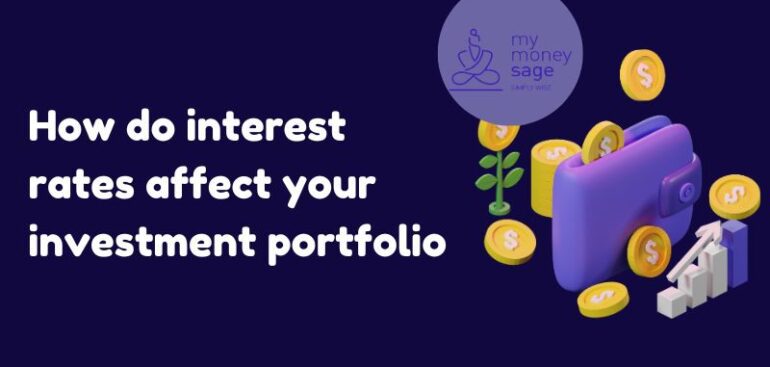Interest rates play a crucial role in shaping the economic landscape, influencing everything from consumer spending to corporate borrowing. For investors, interest rate hikes can have a significant impact on various asset classes, including stocks, bonds, and mutual funds. Understanding how these changes affect your investment portfolio, especially in the context of investment in SIP (Systematic Investment Plan) and mutual fund SIP investment, is essential for making informed decisions.
The Basics of Interest Rate Hikes
Interest rate hikes typically occur when central banks, such as the Reserve Bank of India (RBI), increase the benchmark interest rates to control inflation or stabilize the economy. These hikes make borrowing more expensive, which can reduce consumer spending and slow down economic growth. While the primary goal is often to curb inflation, the ripple effects of higher interest rates extend across the entire financial market.
Impact on Stock Markets
Interest rate hikes can lead to increased volatility in the stock markets. As borrowing costs rise, companies may find it more expensive to finance expansion or operations, which can reduce their profitability. This often leads to a decline in stock prices, particularly for growth-oriented companies that rely heavily on borrowed capital.
For those with investment in SIP, this market volatility can impact the value of their portfolios. However, the systematic nature of SIP investments, where you invest a fixed amount regularly, allows you to benefit from rupee cost averaging. When markets decline, your fixed investment amount buys more units, potentially leading to higher returns when the market recovers.
Impact on Bonds and Fixed-Income Investments
Bonds are particularly sensitive to interest rate changes. When interest rates rise, the prices of existing bonds typically fall because newer bonds are issued with higher yields. For investors holding bonds or bond funds, this can lead to a decline in the value of their investments.
However, if your mutual fund SIP investment includes debt funds, the impact may vary depending on the fund’s duration and interest rate sensitivity. Short-term debt funds are generally less affected by rate hikes compared to long-term bonds. Therefore, investors may consider adjusting their debt fund exposure in response to anticipated rate hikes.
Effect on Mutual Fund SIP Investment
For investors in mutual funds through SIPs, interest rate hikes can have a mixed impact. Equity mutual funds may experience short-term volatility due to fluctuations in stock prices, as discussed earlier. However, over the long term, mutual fund SIP investment in diversified equity funds can still provide substantial returns, especially if the investments are aligned with your financial goals and risk tolerance.
On the other hand, SIP investments in debt or hybrid funds, which include both equity and debt instruments, may face challenges due to falling bond prices. It’s important for investors to review their portfolio allocation and consider rebalancing if necessary. This could involve increasing exposure to equity funds during periods of rising interest rates to capitalize on potential long-term gains, while also maintaining a balanced approach with debt funds.
How to Navigate Interest Rate Hikes with SIP Investments
Interest rate hikes are an inevitable part of economic cycles, and savvy investors need to be prepared for them. Here are some strategies to help navigate these changes:
- Diversify Your Portfolio: Ensure that your investment in SIP is well-diversified across different asset classes, including equity, debt, and hybrid funds. Diversification helps spread risk and can provide more stable returns during periods of interest rate volatility.
- Focus on Long-Term Goals: SIP investments are inherently designed for long-term wealth creation. Rather than reacting to short-term market movements caused by rate hikes, stay focused on your long-term financial goals. The power of compounding and rupee cost averaging works best when you remain invested through market ups and downs.
- Consider Debt Fund Duration: If you have significant exposure to debt funds, consider the duration of these funds. Shorter-duration funds are generally less sensitive to interest rate changes, making them a safer choice during periods of rising rates.
- Review and Rebalance: Periodically review your portfolio and consider rebalancing if necessary. If your risk appetite allows, you might increase exposure to equity funds to take advantage of potential market recoveries following interest rate hikes.
- Stay Informed: Keep track of economic indicators and central bank policies to anticipate potential rate hikes. Being informed allows you to make proactive adjustments to your portfolio rather than reacting after the fact.
Conclusion
Interest rate hikes can create uncertainty in the financial markets, affecting various asset classes differently. For investors with investment in SIP and mutual fund SIP investment, understanding these impacts is crucial for maintaining a balanced and resilient portfolio. By focusing on diversification, long-term goals, and periodic portfolio reviews, you can navigate the challenges of rising interest rates while continuing to build wealth through systematic investment plans. Remember, the key to successful investing lies in staying informed and disciplined, regardless of market conditions.


